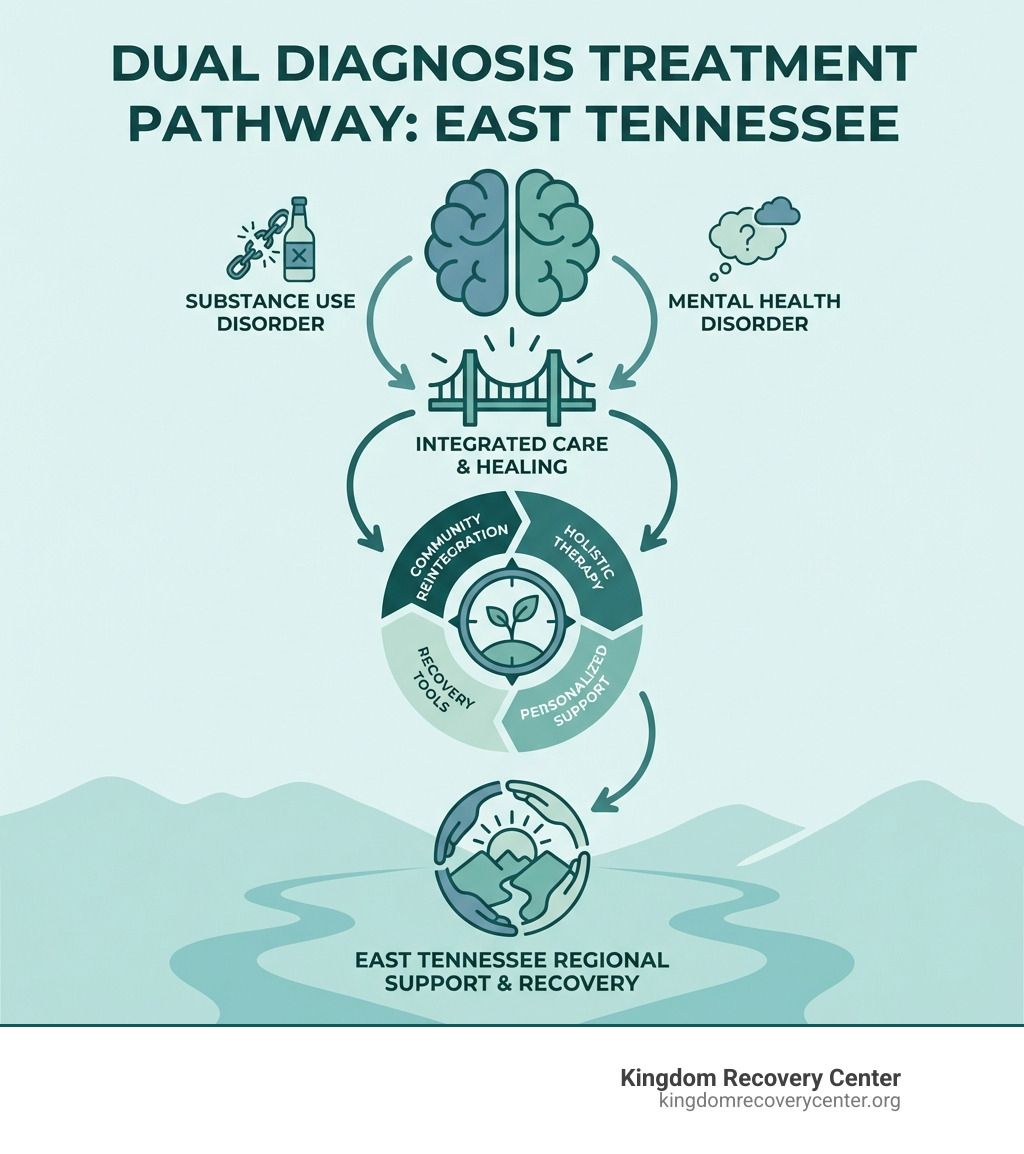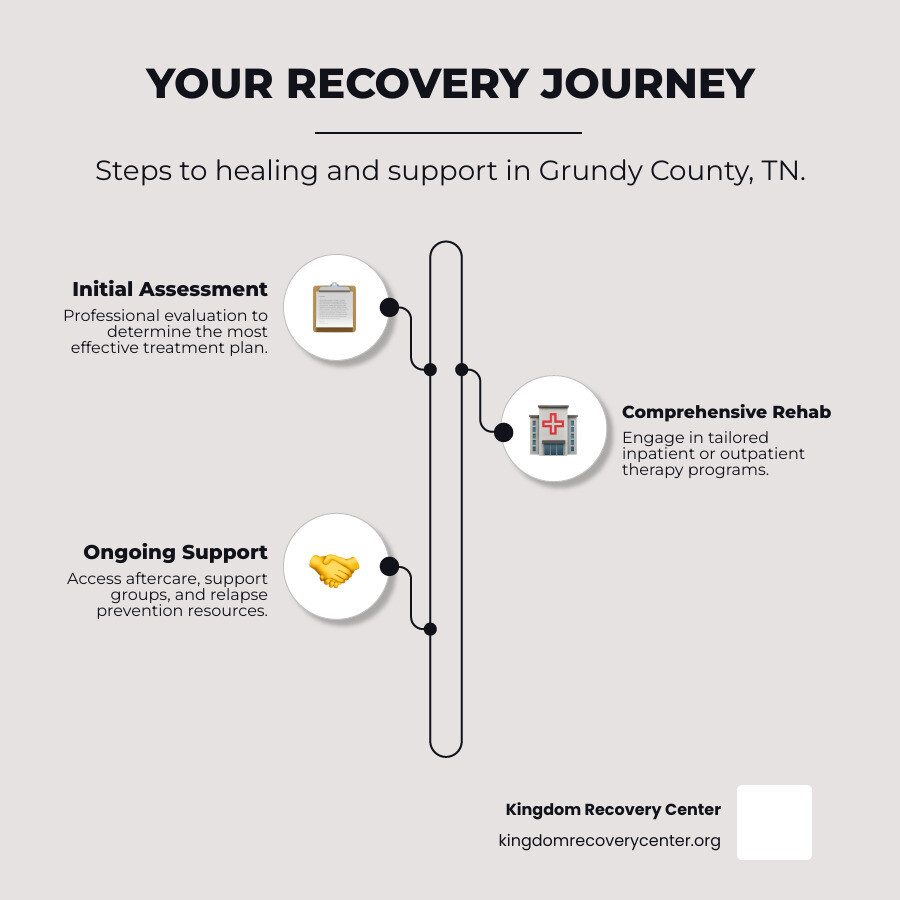
Key Benefits of Therapy in Addiction Rehabilitation

The Importance of Therapy in Addiction Treatment and Recovery
Is addiction treatment and recovery more effective when therapy plays a central role? This post outlines how therapy addresses underlying trauma, manages triggers, and builds lasting coping strategies. The reader will learn about the best therapy for addiction treatment and the benefits of trauma-informed addiction counseling. Clear guidance on individual and group therapy for substance abuse offers practical ways to overcome treatment obstacles and improve overall wellbeing.
Key Takeaways
- therapy integrates evidence-based methods like CBT, DBT, and motivational interviewing
- group and individual sessions offer practical support for substance recovery
- trauma-informed practices help address emotional challenges in addiction treatment
- structured guidance and mindfulness techniques support lasting healing
The Importance of Therapy in Addiction Treatment and Recovery

Therapeutic interventions address substance dependence by reducing risk and guiding behavior change through feedback and structured support. Therapy supports lasting recovery by building coping strategies, enhancing self-awareness, and fostering personal growth. It also emphasizes the impact of mental health on substance use disorders, with tools like naltrexone reinforcing accountability and ensuring continuous improvement.
Understanding the Role of Therapeutic Interventions
The therapeutic interventions model focuses on reducing negative emotions such as shame and anger while addressing the immediate needs of individuals struggling with substance use. This approach benefits from the practical insights of social work professionals who collaborate closely with clients to smooth transitions in behavior and bolster confidence during recovery, an experience often supported by positive interactions with health insurance providers offering treatment and counseling services.
Programs emphasizing therapeutic interventions help individuals adjust their strategies to confront recurring challenges in daily environments. The practical guidance provided by experienced practitioners effectively mitigates internal conflict and promotes constructive dialogue, ensuring that every step of the recovery experience reinforces the importance of addressing complex feelings and emotional triggers.
How Therapy Supports Lasting Recovery
Therapy supports lasting recovery by offering a structured approach that addresses deep-seated pain and builds effective coping strategies, as seen in several clinical trial outcomes across the United States. This structured guidance was especially valuable during periods akin to a natural disaster, where individuals in Indianapolis found solace and direction in therapeutic practices:
| Key Element | Impact |
|---|---|
| Coping Strategies | Provide tools to manage pain and daily stressors |
| Clinical Trial Evidence | Validates the effectiveness of therapy in lasting recovery |
| Structured Guidance | Assists individuals during crises similar to natural disaster scenarios |
| Indianapolis Focus | Highlights regional success stories in therapeutic interventions |
The practical insights gained from therapy sessions empower individuals to navigate complex emotions and reduce recurring pain, enhancing their overall well-being. Informed by clinical trial data, therapeutic interventions across the United States continue to transform lives by providing a clear path amidst challenging circumstances.
The Impact of Mental Health on Substance Use Disorders
The intersection between mental health and substance use disorders reveals a nuanced relationship that professionals continue to decode. A significant aspect involves the reward system, where fluctuations can exacerbate conditions such as opioid use disorder, prompting health professionals to integrate tailored strategies that incorporate regular exercise, fostering both stability and improved transparency in treatment measurements.
Emerging approaches stress transparency in patient data, providing critical insights into mental health trends that impact substance use. Practitioners now advocate for complementary routines like exercise, benefiting the reward system and bolstering overall management for individuals navigating opioid use disorder.
Building Coping Strategies Through Therapy
The therapeutic process equips individuals with effective tools such as contingency management and mindfulness techniques that address stress and build resilience. Skilled professionals at treatment centers integrate these methods into structured sessions to help patients realign their brain functions and foster a sense of holism during recovery.
Therapy instills practical coping strategies that reduce daily stress while providing a pathway to recovery that acts as a cure for underlying emotional struggles. Patients benefit from targeted interventions that are designed to recalibrate the brain and encourage a holistic approach to overcoming substance dependence.
Enhancing Self-Awareness and Personal Growth
In enhancing self-awareness and personal growth, therapy provides a safe space for clients to reconnect with their inner selves and understand the triggers of substance use disorders through systematic approaches. Physician-guided sessions that incorporate art therapy enable individuals to express emotions non-verbally, allowing them to gain insights into their behaviors and work toward abstinence in a supportive, structured environment.
Practitioners emphasize the role of therapeutic interventions in refining personal growth and self-knowledge by offering various techniques, such as using an animal-assisted component to encourage emotional regulation. These sessions equip clients with practical tools and firsthand strategies to address persistent challenges related to substance use disorders, promoting improved decision-making and sustainable recovery outcomes.
Best Therapy for Addiction Treatment

This section provides an overview of effective therapeutic approaches. It examines Cognitive Behavioral Therapy’s role in addressing childhood trauma and emotion management, Dialectical Behavior Therapy’s benefits for stress regulation, Motivational Interviewing for motivation, and holistic techniques that refine daily tic management. The following content offers practical insights on these essential methods.
Overview of Effective Therapeutic Approaches
Effective therapeutic approaches foster healing and encourage practical thought processes among individuals in need of recovery. Treatment centers in Texas have relied on data from clinical outcomes to refine methods that diminish violence and support a balanced recovery journey.
These strategies offer hands-on expertise, enabling practitioners to guide patients through actionable insights focused on overcoming addiction. Evidence from Texas programs shows that integrating data with healing practices proves beneficial in reducing violence and sustaining recovery over time.
Cognitive Behavioral Therapy’s Role in Recovery
Cognitive Behavioral Therapy offers a structured approach in recovery that aligns with evidence from cochrane reviews and integrates elements of motivational enhancement therapy to help individuals establish clear behavioral patterns. This method benefits from a strong organization of sessions that include education on coping strategies and meditation practices:
- Clear structure and targeted sessions
- Integration of motivational enhancement therapy insights
- Focus on educational modules and meditation techniques
The approach provides actionable strategies that address common pain points in addiction recovery, allowing patients to gain control over their emotional responses. It supports sustained recovery through regular guidance and practical insights from established organizations with a commitment to advancing educational initiatives in behavioral health.
Dialectical Behavior Therapy and Its Benefits
Dialectical Behavior Therapy provides structured support to ease fear and reduce neglect by offering a clear framework that assists individuals in establishing a tangible goal for recovery. Its practical techniques are rooted in ethics, ensuring that every step in the recovery process is managed with professionalism and care.
This approach employs a mix of cognitive strategies that encourage real-life application similar to the steady determination seen in a horse during a race:
| Key Component | Benefit |
|---|---|
| Structured Sessions | Helps individuals address fear and set recovery goals |
| Ethical Practice | Reduces neglect through professional support |
| Practical Insights | Facilitates clear and actionable recovery steps |
The clear, practical methods of Dialectical Behavior Therapy allow professionals to offer actionable insights that meet the immediate needs of those recovering from addiction. By focusing on reducing fear and avoiding neglect, the therapy supports clients in achieving their recovery goal effectively, mirroring the perseverance of a horse in steady progress.
Motivational Interviewing to Foster Change
Motivational Interviewing enhances the recovery model by building trust and clarifying objectives, paving the way for actionable goal setting while ensuring patient consent during sessions. Here is a summary of its key elements in practice:
| Element | Detail |
|---|---|
| Recovery Model | Guides treatment planning for personalized progress |
| Narcotics Anonymous | Supports group cohesion through peer feedback |
| Couples Therapy | Fosters stronger personal relationships during recovery |
| Goal Setting | Promotes clear, actionable recovery objectives |
| Consent | Ensures that all interventions respect client autonomy |
Motivational Interviewing offers practical techniques that guide individuals through challenges with clarity and support, incorporating examples from settings that include confession-based group sessions in narcotics anonymous and couples therapy environments. The method’s focus on goal setting and obtaining explicit consent reinforces a practical blueprint for change and further solidifies its effectiveness in promoting enduring recovery.
Integrating Holistic Therapies in Treatment
Holistic therapies in treatment offer a balanced approach to recovery by helping clients develop practical life skills and effective coping mechanisms to manage addiction. This method addresses challenges such as sexual abuse and assault while providing actionable support to overcome complex emotional pain:
- Mindfulness techniques for stress management
- Structured support to build life skills
- Therapeutic interventions addressing past trauma
- Guidance in developing coping strategies
Integrating these therapies supports clients in regaining control over their lives and promotes sustainable recovery by combining proven practices with personalized care. Skilled professionals guide patients toward rebuilding confidence and resilience, ensuring each step in the recovery process is meaningful and practical.
Trauma-Informed Addiction Counseling

Research and information in rehab highlight the vital link between trauma and addiction, including issues like methamphetamine use. Trauma-informed care establishes clear principles and techniques for mental health treatment, addressing survivors’ needs and building trust in therapeutic relationships. This approach provides a structured guide for trauma-sensitive therapy sessions and effective addiction recovery strategies.
Recognizing the Connection Between Trauma and Addiction
In trauma-informed addiction counseling, professionals examine how adverse experiences shape behavioral patterns and contribute to substance misuse. Recognizing the connection between trauma and addiction aids in framing effective policy and treatment guidelines, while insights from Atlanta-based programs underscore the need for an integrated culture that supports recovery with tools such as naloxone and targeted drug interventions:
| Aspect | Description |
|---|---|
| Trauma Impact | Identifies links between early adverse experiences and later drug use |
| Policy Measures | Incorporates evidence-based guidelines into treatment frameworks |
| Cultural Insights | Highlights regional approaches from Atlanta to support recovery |
| Harm Reduction | Utilizes tools like naloxone to mitigate drug-related harms |
The connection between trauma and addiction emphasizes the need for comprehensive screening and tailored interventions that address both issues concurrently. This approach, informed by first-hand expertise and practical examples from diverse treatment settings, ensures that clients receive care that considers their unique cultural backgrounds and provides clear strategies involving policy and naloxone distribution to manage drug use disorders effectively.
Principles of Trauma-Informed Care in Treatment
Expert practitioners integrate the principles of trauma-informed care in treatment sessions by using evidence-based practices such as biofeedback to address both emotional stress and underlying conditions like hepatitis c. This structured approach combines knowledge from clinical research with a compassionate understanding of trauma, ensuring that the recovery process reaches the heart of addiction challenges and builds effective strategies for long-term stability.
Clinicians use actionable insights and first-hand expertise to implement trauma-informed care that supports individuals in their recovery journey. Their use of biofeedback and targeted treatment strategies, supported by comprehensive knowledge and monitoring of conditions such as hepatitis c, aligns with patient needs and addresses core emotional issues to facilitate clearer pathways to healing.
Techniques for Trauma-Sensitive Therapy Sessions
Clinical experts design trauma-sensitive therapy sessions to improve social skills and develop effective psychosocial strategies that help treat addiction in a balanced lifestyle. The sessions focus on techniques that address addictive behavior while building a foundation of trust and clear communication between provider and client:
- Structured feedback and targeted interventions
- Practical exercises for improving social skills
- Steps to manage addictive behavior and maintain a healthy lifestyle
- Psychosocial strategies to tackle underlying traumas
Specialized practitioners utilize trauma-sensitive methods to deliver actionable insights that support lasting recovery. These techniques equip clients with the skills needed to handle emotional triggers and adapt their lifestyle to overcome challenges related to addictive behavior.
Addressing the Needs of Trauma Survivors
Trauma-informed addiction counseling recognizes the unique struggles of survivors by applying empathy in every session, ensuring that clients understand the definition of recovery beyond mere symptoms of drug withdrawal. Professionals address the nuances of abuse through focused engagements that improve mood and facilitate healthier responses to past trauma.
Specialized practitioners deliver targeted interventions that incorporate a clear definition of therapeutic goals, helping trauma survivors manage drug withdrawal with practical guidance. The approach centers on empathy and attentive care, providing a structured pathway to counter abuse and maintain a balanced mood during recovery.
Building Trust in Therapeutic Relationships
Building trust in therapeutic relationships is essential in trauma-informed addiction counseling. Professionals use clear communication as a tool to improve understanding and reduce the effects of trauma, ensuring patients feel supported during their recovery journey.
Therapy sessions incorporate techniques like yoga and cognition exercises to establish a stable foundation of trust, offering actionable insights that empower patients to manage trauma effectively:
| Strategy | Benefit |
|---|---|
| Clear Communication | Enhances understanding and builds trust |
| Yoga Techniques | Acts as a tool for stress relief and trauma management |
| Cognition Exercises | Strengthens mental clarity and supports sustained recovery |
Individual and Group Therapy for Substance Abuse

Individual therapy builds understanding through one-on-one sessions while group therapy offers communal support and shared experiences. This section reviews smart recovery benefits, examining how personal sessions adjust heart rate responses by reducing stress and enhancing health, and compares these with group settings where support networks are key. Criteria for selecting the appropriate reason and principle behind each approach are discussed.
Benefits of Individual Therapy in Addiction Recovery
Individual therapy offers focused support for those facing substance abuse challenges, such as prescription drug addiction, by enabling patients to process specific triggers and develop personalized coping strategies. This targeted approach not only assists with memory retention of healthy behaviors but also addresses issues related to comorbidity, creating a more cohesive treatment plan within the program.
Practitioners utilize individual sessions to adjust interventions that may include the strategic use of an antidepressant, ensuring that clients receive support tailored to their unique needs. The personalized nature of these sessions provides actionable insights and professional guidance that contribute to sustained recovery and clearer improvement in overall well-being.
Advantages of Group Therapy in Treatment Settings
Group therapy in treatment settings offers a supportive environment where members share experiences and address challenges such as impulsivity and relapse triggers. The therapeutic community built within these sessions promotes collective healing and creates a supportive network that extends beyond individual interactions, often aiding in improved treatment outcomes and community awareness.
Sessions led in a group setting also provide practical insights into the prevalence of substance use disorders and offer guidance that aligns with medicare standards. This approach fosters a sense of belonging and encourages individuals to build lasting relationships that are instrumental in sustaining recovery within their broader community.
Comparing Individual and Group Therapeutic Approaches
The analysis reveals that individual therapy offers tailored sessions where professionals address unique needs related to medication management and opioid treatment, while group therapy promotes peer support and shared experiences that consider factors such as gender and personal challenges.
Both approaches provide practical insights into effective medicine usage and therapy techniques, emphasizing structured guidance and personalized recovery plans:
| Approach | Key Benefit | Focus |
|---|---|---|
| Individual Therapy | Personalized strategies for medication and opioid management | Tailored sessions considering unique gender needs |
| Group Therapy | Shared experiences and community support | Collaborative environment enhancing overall therapy |
How to Choose Between Individual and Group Therapy
When choosing between individual psychotherapy tennessee and group therapy, a careful narrative of personal needs and treatment history is essential. Professionals at american addiction centers often assess the role of the sympathetic nervous system in stress responses, guiding patients in florida through decisions such as incorporating methadone in personalized treatment plans or engaging with a supportive group setting.
Experts advise that the decision should consider individual comfort and recovery goals, balancing personalized care with community support. Specialists use first-hand expertise to illustrate how targeted interventions in group sessions can complement tailored approaches, helping clients achieve sustainable recovery and overall well-being.
The Role of Support Networks in Group Therapy
Support networks in group therapy foster an environment where individuals benefit from shared experiences and practical insights that enhance the overall efficacy of treatment programs. Clinics that integrate support groups emphasize learning through mutual feedback, reinforcing the role of structured sessions in addiction recovery while even incorporating music therapy as a soothing and engaging element.
In group therapy settings, peer support plays a critical role in reinforcing healthy behaviors and promoting resilience during recovery. Effective advertising of these programs highlights real-world examples of how communal support and collective learning provide a robust foundation for overcoming substance abuse challenges, further validating the approach’s overall efficacy.
Conclusion
Therapy plays a vital role in treating addiction by providing structured support that fosters long-term coping skills and personal growth. It equips individuals with practical tools to manage triggers and navigate complex emotional challenges. The process of individual and group sessions strengthens social connections and promotes shared accountability among peers. By addressing underlying trauma and co-occurring mental health conditions, therapy creates a clear pathway toward sustainable recovery.



